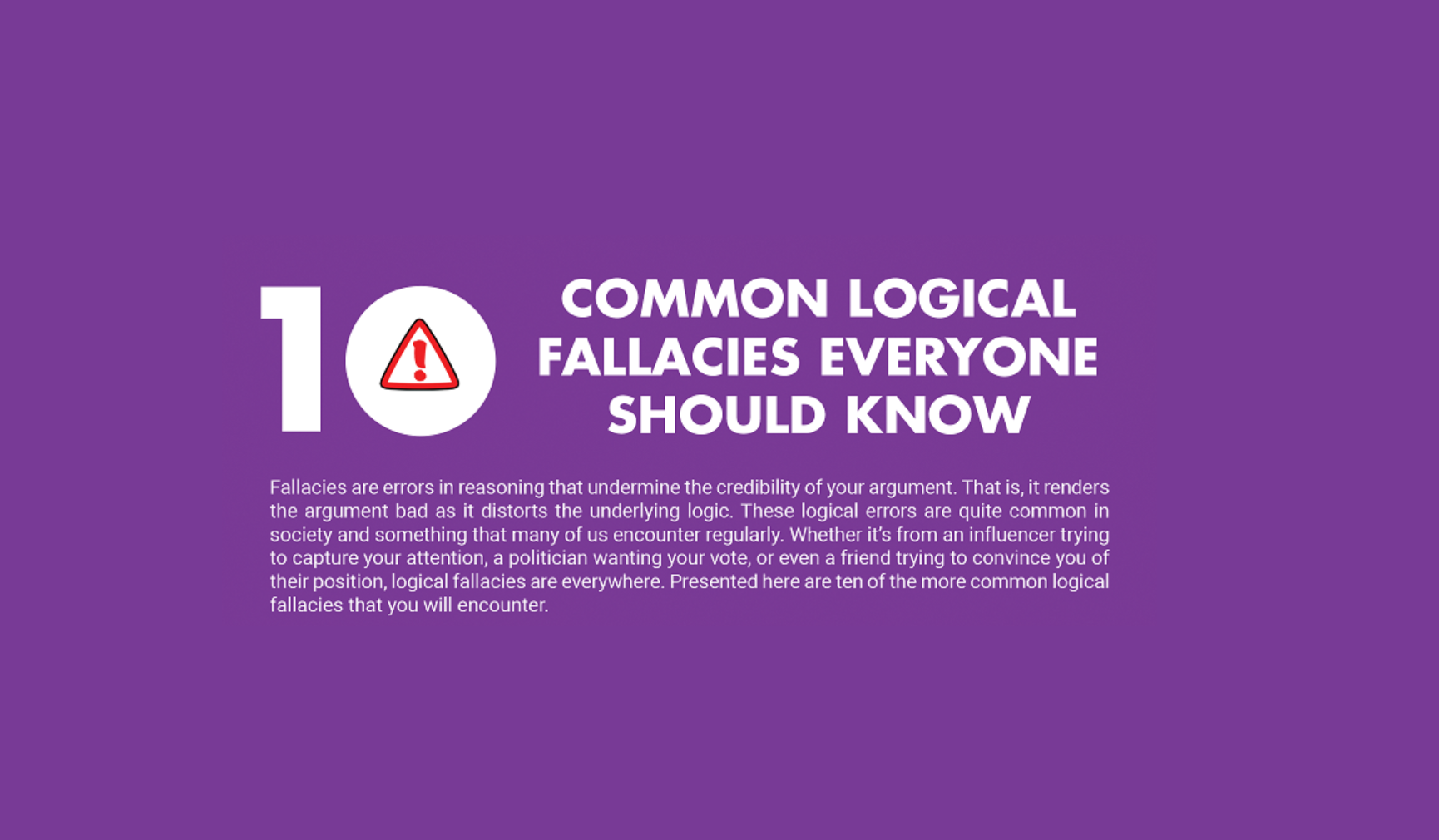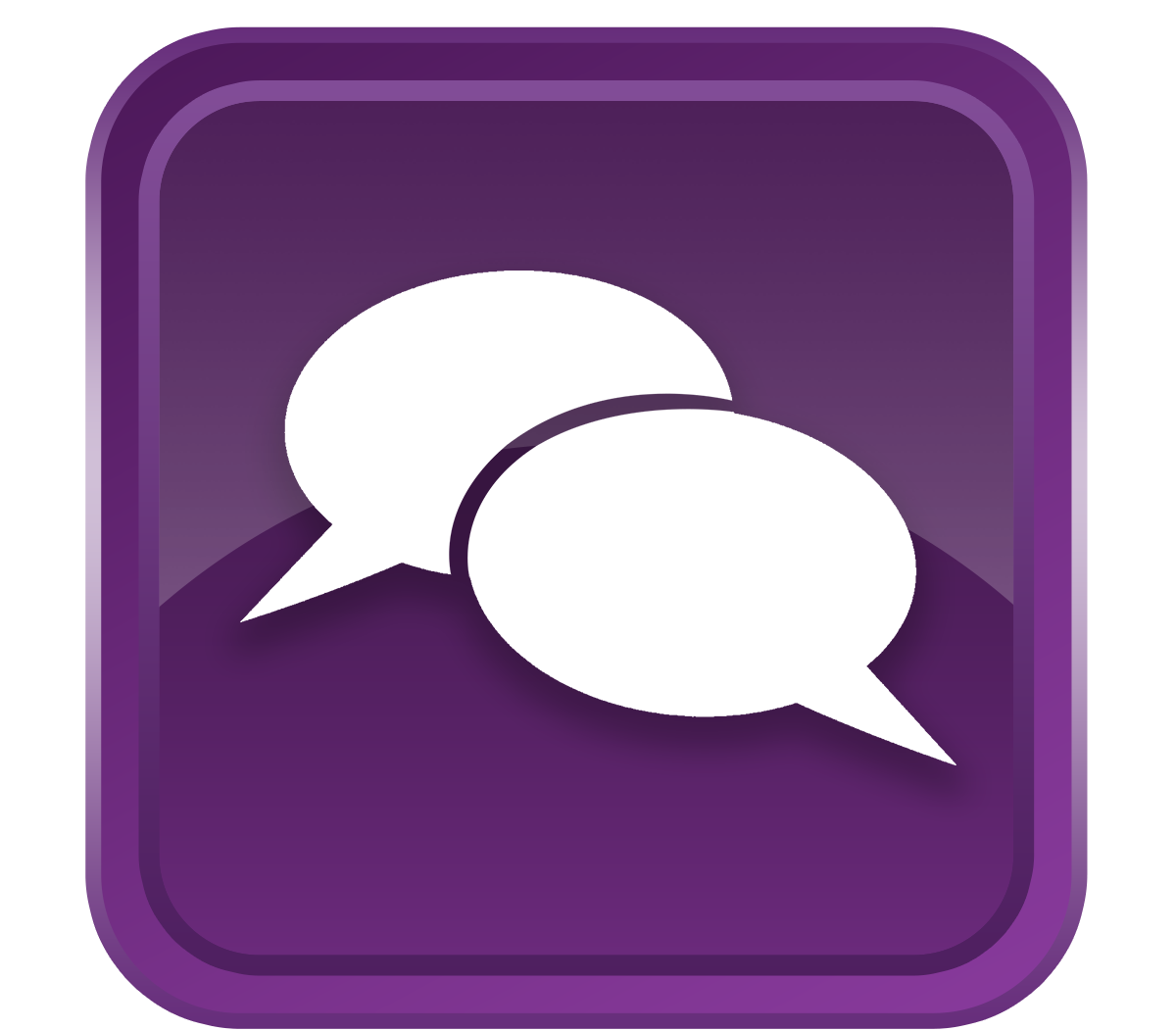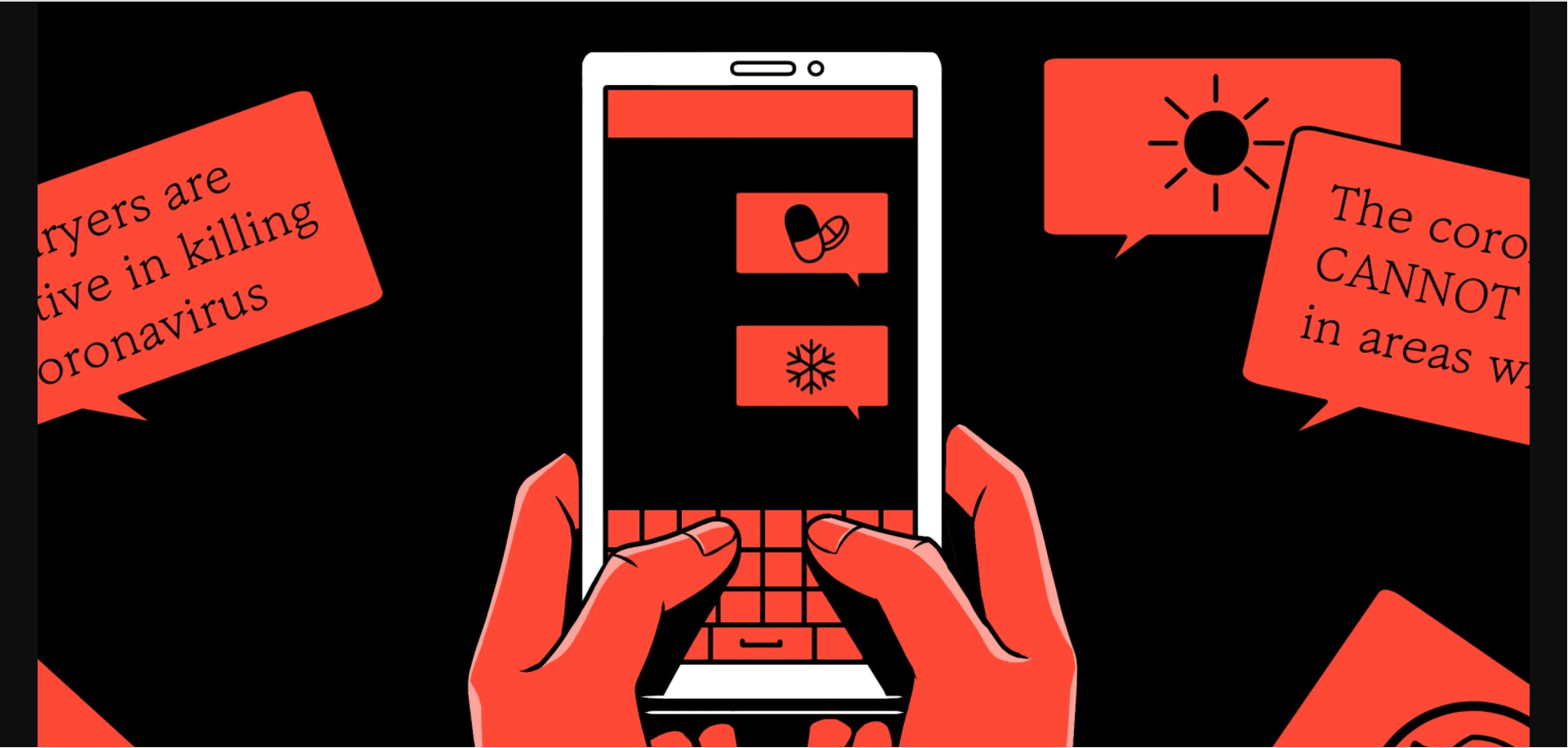Science is interesting but messy. It has flaws and limitations, but it remains our most effective tool to understand the natural world. Contrary to what many may think, science does not “prove” [1] anything and it does not lead to an “objective truth”. Science is the process by which scientists collect data through observational and experimental evidence to explain a particular phenomenon…
Read MoreFallacies are errors in reasoning that undermine the credibility of your argument. That is, it renders the argument bad as it distorts the underlying logic. These logical errors are quite common in society and something that many of us encounter regularly. Whether it’s from an influencer trying to capture your attention, a politician wanting your vote, or even a friend trying to convince you of their position, logical fallacies are everywhere. Presented here are ten of the more common logical fallacies that you will encounter.
Read MoreAn informal fallacy where personal experience or a singular example is used instead of compelling evidence. People often gravitate towards using their own experiences or those of people around them as evidence in arguments. It's natural to do so as citing scientific evidence to craft a good argument takes effort and most of us are lazy thinkers and opt for the quicker and easier…
Read MoreIn a world where sharing information is rampant, pseudoscientific claims have become a public health threat. This is further reinforced by algorithms and filter bubbles that personalize the user’s feed by detecting what has been shared or liked in the past. This might not be a problem for those trained in the sciences where skepticism, logical reasoning, and critical thinking skills are often applied, inoculating them against pseudoscientific advice that lacks any evidence of effectiveness. For others, these filters trap the user in a knowledge bubble and…
Read MoreSkepticism is derived from the word skepsis, which means inquiry, examination, or investigation of a perception. More specifically, scientific skepticism refers to a method of systematic doubt used to objectively examine a premise, usually on the basis of empirical evidence, wherever possible. It is about cultivating critical habits of mind to weigh evidence. Scientific skepticism is a balance between being open to new ideas and being skeptical of claims that lack supporting evidence.
Holding skeptical views about science in the media and the accuracy of claims is central to…
Read MoreScience, at a fundamental level, can be distilled into a series of paradigms, or sets of concepts and practices that define a scientific discipline at a particular period of time [1]. These paradigms are defined by the sum total of available scientific evidence.
Paradigms have guided scientific discovery for centuries. For example, the geocentric model of the universe, which posited that the Earth was the astronomical body that all other planets rotated about, held for more than 1,500 years. The miasma theory, which suggested that disease was caused by “bad air,” prevailed from the days of the ancient Chinese through the late 19th century.
These paradigms were shattered by the work of…
Read MoreVaccinations are arguably the greatest medical technology ever created. From the eradication of smallpox to the prevention of certain types of cancers, the success of vaccines is indisputable. The recent COVID-19 vaccines are no less impressive than their numerous predecessors. The leaders in effectiveness are the dual-dose Moderna and Pfizer vaccines, which achieve about 95% effectiveness after two doses, while the single-dose Johnson & Johnson vaccine has a 72% overall efficacy with an 86% efficacy against severe disease. While no vaccine offers 100% protection, they are all recommended to…
Read MoreAn informal fallacy that occurs when evidence is presented in response to a specific claim that is subsequently dismissed and greater evidence is then demanded. Or, demanding from an opponent that he/she address more points after the initial counter-argument has sufficiently provided evidence against the primary argument. That is, the requirement for a sufficient rebuttal is continually changed after each counter-argument so as to never be able to
Read MoreA year ago, the idea that SARS-CoV-2 emerged from a Chinese laboratory was regarded widely with suspicion, disbelief, and, at times, dismissal. Now, the possibility is treated as far more plausible, with recent statements from President Biden, Dr. Fauci, and WHO General-Secretary Tedros Adhanom Ghebreysus insisting that the theory cannot be ruled out. This shift reflects the changing attitudes of scientists, government authorities, and the media, despite no definitive explanation for the origins of the virus.
There’s no more evidence to support the lab leak theory than there was 16 months ago and yet it has received substantial new attention. Partially, this is due to…
Read MoreMany have noted that the Covid-19 pandemic was accompanied by an “infodemic” — a flood of related news and information that played a large role in how different populations responded to the virus. Looking back at 2020, we can now see what a full year of Covid-19 coverage tells us, from who was publishing the most to who was publishing the best, most well-researched journalism.
The Factual used its AI-powered algorithm to analyze 178,845 articles about Covid-19 from across the political spectrum in 2020. The emerging data allows us to analyze trends in media output, including…
Read MoreOver the last two decades, Americans have become more distrustful of traditional media sources. Pejorative terms like “fake news” and “mainstream media” have become particularly common among Americans in the last few years as a way to express frustration with how traditional institutions are reporting the news. Still, two out of three Americans say that the news is very important in holding political leaders accountable. What’s behind the drop in trust and what can…
Read MoreIn part I, we discussed the concept of knowledge and introduced the Justified True Belief theory as a possible framework for establishing how it is that we might be able to say that we know anything at all. We also introduced the notion that science doesn't actually ever prove anything. That is, due to the philosophical structure of science, we never can be absolutely certain about any of the knowledge attained through it. This may appear problematic, but it is the…
Read MoreHave you ever gotten into a debate over a scientific topic with someone? For example, Big Bang Theory or Evolutionary Theory? If you have, maybe it went something like this, “We know the Big Bang happened because we have evidence of space expanding via Hubble’s Law, and the Cosmic Microwave Background suggests that at one time everything was condensed into a very small volume before rapid expansion.” In my experience, the people I debate respond by either questioning the…
Read MoreThe COVID-19 pandemic continues to rage throughout the world including the United States which averaged 243,503 cases and 3119 deaths over the last seven days [1]. The surge in post-holiday cases has pushed hospitals past capacity. As of January 10th, there are 128,710 active COVID-19 hospitalizations [2]. 35% of intensive care units are 90% or more occupied [3]. The overwhelming number of hospitalizations has caused staff and equipment shortages and fundamentally altered the way that we deliver care. These shortages will…
Read MoreIt is certainly interesting times that we find ourselves in. Fake news, pervasive science denial, a new conspiracy theory seemingly every week, tens of thousands of unnecessary deaths from the pandemic that could have been easily avoided by acknowledging the recommendations coming from the scientific community, and many more examples. Society is swimming in false information that is literally costing people their lives at this point and driving us apart through polarization [1]. But what can we do? Quite a bit actually…
Read MoreAt the outset of the COVID-19 pandemic, both the World Health Organization (WHO) and the Centers for Disease Control and Prevention (CDC) did not recommend wearing masks to prevent the spread of the SARS-CoV-2 virus. As the pandemic has raged on, however, these organizations now recommend the opposite. As a result, an increasing number of cities and states within the United States require the use of a mask when in public settings. The shifting guidelines by…
Read MoreEstablishing the credibility of information and claims in today’s information-dense world can be challenging. How do you know that information and claims you hear about are worth trusting as accurate? How do you avoid mistakes in your own thinking when deciding if something is true or when deciding on a particular course of action? Critical thinking is a method for…
Read MoreCognitive biases are systematic patterns of deviation from rationality. The way that we see the world is completely subjective as our senses do not perfectly render the world around us. As a result, we can never be truly objective, which often times leads to inaccuracies in judgment, distortions in perception, illogical interpretation, or what is broadly called irrationality. These biases can also be thought of as our brain's way of taking “shortcuts” in decision making when timeliness outweighs the importance of accuracy. While there are well over 100 different cognitive biases that we are aware of, ten of the more prominent biases are presented here.
Read More

















